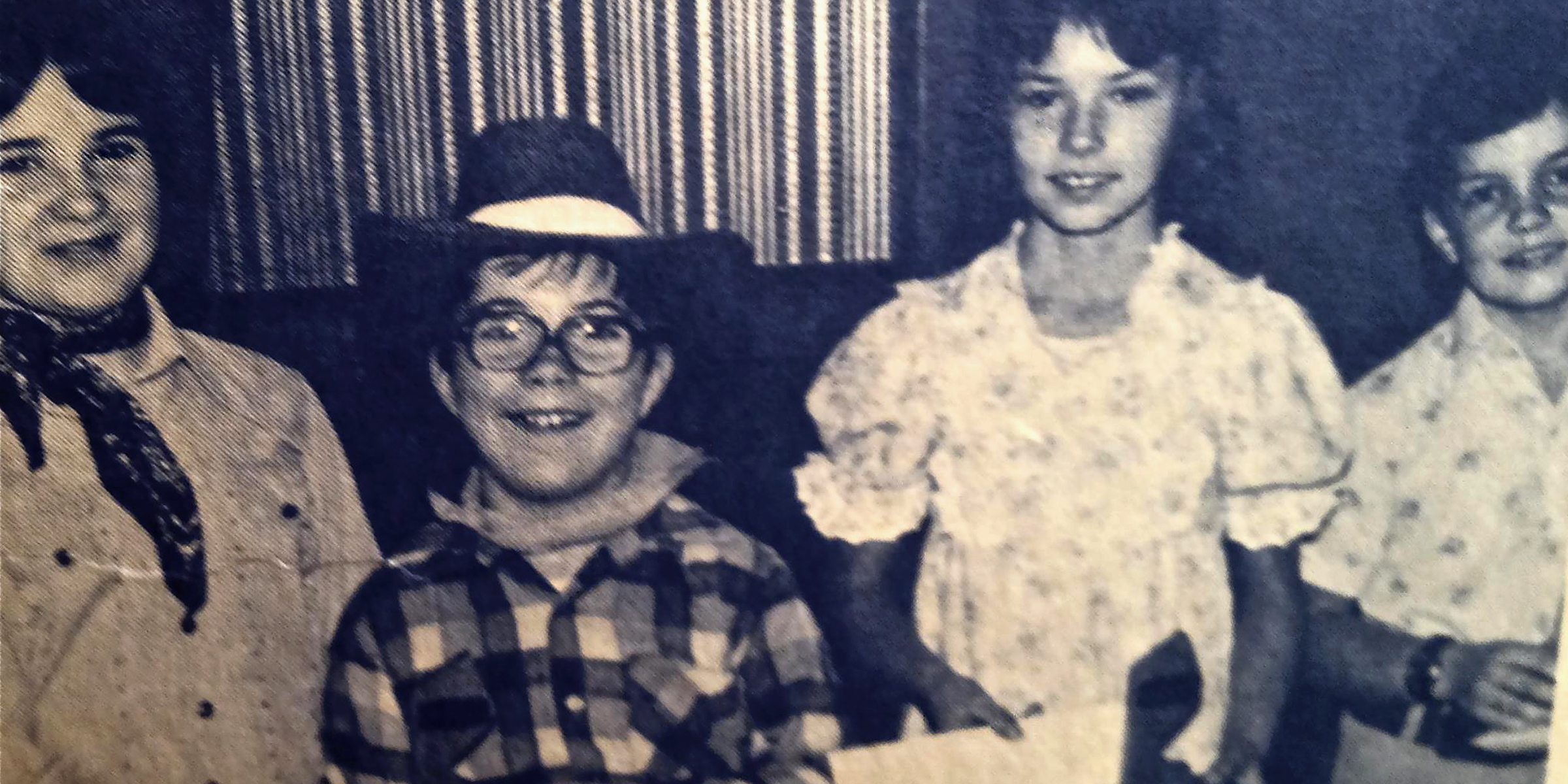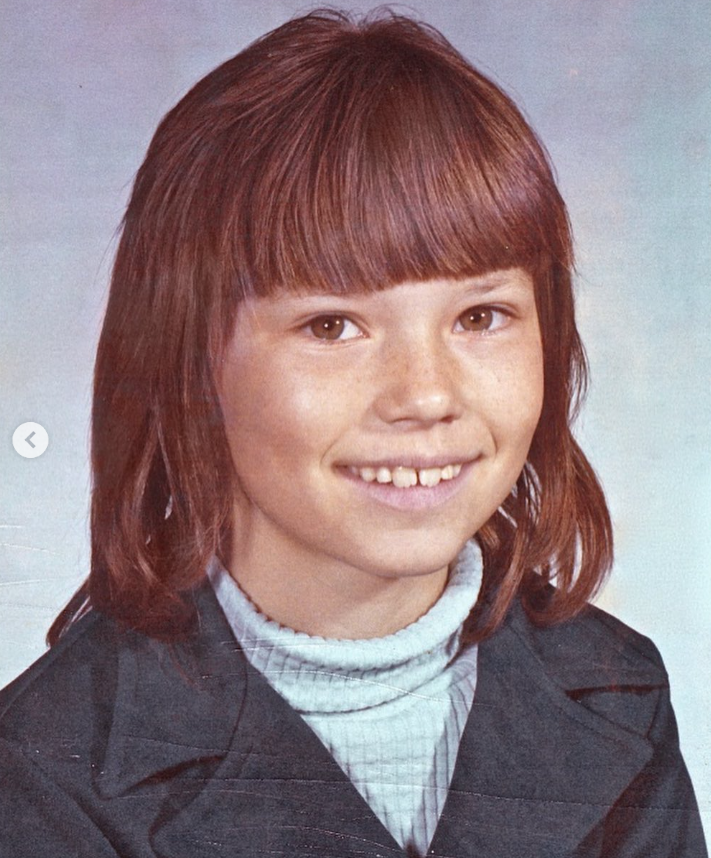
This Child Endured Abuse from Her Stepfather and Cared for Her Siblings After Her Parents’ Tragic Death — Now, She’s a Famous Music Star
A young girl from Ontario found strength in music while facing a harsh reality at home. After tragedy struck, she was thrust into the role of caregiver, putting her dreams aside to keep her family afloat. Years later, her voice, once a private escape, has become a source of inspiration worldwide.
She was born into poverty in Timmins, Ontario, where her family struggled to meet basic needs. Her stepfather’s low-paying reforestation job and her mother’s struggle with depression left little room for change. As one of five children, she quickly learned to go without, finding solace in her love for singing.
Singing in bars from a young age, she found moments of escape and self-worth. But nothing could prepare her for the burdens she would face when, at just a young age, she was left to raise her siblings alone.

Photo of the young girl, dated September 26, 2019 | Source: Instagram/shaniatwain
A Childhood in Poverty and Strife
From her earliest years, she knew what it was like to live without. Money was always tight, and her family often lacked essentials like food, heating, and even reliable lighting.
She quickly became aware of how different her life was from that of her classmates. Going to school without lunch, she would watch her peers and wonder if they’d leave an apple untouched, hoping she might take it later.
To avoid the embarrassment of admitting she had no lunch, she’d tell her teacher it was “in her locker” or that she’d “forgotten it.” Music became her way of escaping these harsh realities, especially the persistent hunger.
She’d take her guitar and retreat into the forest, where she’d light a small fire and lose herself in the songs she played. The melodies helped her forget the emptiness in her stomach.

The singer, photographed on February 26, 1996 | Source: Getty Images
Her mother saw her talent as a way out, too, and began taking her to sing in local bars starting at age eight. Because the bars couldn’t legally let her in while alcohol was being served, she would perform after midnight when the patrons had stocked up on drinks.
By age eleven, she had a special permit to perform earlier in the evening, though she wasn’t paid until age fourteen. That was after she began working at McDonald’s, a job she called her “saving grace,” as it offered her both a paycheck and regular meals — luxuries she had long dreamed of.
Her routine of attending school, working at McDonald’s, and singing in bars left her utterly exhausted. Yet, she persevered, fueled by a deep love for music and a hope that it could one day bring her a better life.

The singer performs in 1995 | Source: Getty Images
Abuse and Trauma at Home
Her struggles at home ran deeper than poverty. The presence of her stepfather, who legally adopted her and her siblings, cast a darker shadow over her childhood. He was not just harsh but abusive, creating an environment of fear and pain that permeated her daily life.
She remembers learning to fend for herself against his violence, once summoning the courage to throw a chair at him in self-defense. “I think a lot of that was anger, not courage,” she later reflected, describing how her survival instincts clashed with the constant fear she felt.
This abusive environment left her feeling isolated, eroding her sense of trust and making it difficult for her to believe she deserved safety or kindness. Sadly, the physical abuse was only part of her trauma.
From the age of ten, she suffered a different kind of harm — a betrayal that shattered her innocence and sense of safety. Her stepfather started abusing her sexually.

The singer as seen in 1995 | Source: Getty Images
For years, she kept the secret of this deeper violation, carrying the weight of that trauma in silence. Only recently did she feel able to share her story publicly, recognizing the importance of speaking up.
She never got the chance to confront her stepfather, as he’d meet an untimely end. This loss would bring her complex grief; the man who had caused her so much harm would leave her with unresolved trauma and a lifetime of unanswered questions.
Sudden Loss and Responsibility
At just twenty-two, she experienced a tragedy that shifted the entire course of her life. Her mother and stepfather died suddenly in a car accident, leaving her to care for her younger siblings. As the second eldest, she was now responsible for raising them, stepping into a role she had never anticipated.
Determined to keep her family together, she took a singing job at a nearby resort hotel, a position that allowed her to afford a small home. Her daily routine was demanding. She would start each day by chopping wood to heat the house, getting her siblings off to school, and then performing into the night to make ends meet.

The singer performs on May 8, 1996 | Source: Getty Images
With her role as a singer came pressure to project a polished and feminine image, something she hadn’t focused on before. But now, it was a requirement for her job. Navigating this public role came with many challenges.

The singer performs on February 25, 1996 | Source: Getty Images
She was aware of the expectations that came with performing and worked to maintain her personal boundaries in an environment where her appearance was scrutinized. Still, her main concern was supporting her family.

The singer performs in a concert on June 21, 1998 | Source: Getty Images
Rising Above and Building a Career
As her siblings grew older and more independent, she began to focus on her music career, hoping to turn her lifelong talent into something lasting. Determined to make a breakthrough, she recorded a demo and sent it to various record labels.
Her perseverance paid off when Mercury Nashville signed her, giving her the chance to release her debut album. This step marked the beginning of her musical career. Her singing would now bring her recognition far beyond the local venues she was used to.

Photo taken on December 6, 1995 | Source: Getty Images
Shortly after signing with the label, she crossed paths with a renowned music producer. He became her collaborator and, eventually, her husband. Together, they created music that resonated widely, blending her unique voice with his co-writing and production expertise.

Her then-husband, seen in February 2000 | Source: Getty Images
Their partnership was instrumental in shaping her career, and her fame grew rapidly as a result. Her music began reaching audiences on a scale she had once only dreamed about.

The singer poses with her CMA awards on October 4, 1995 | Source: Getty Images
Despite her rising success, she faced a significant setback years later when she began to lose her voice. It wasn’t until a decade after the symptoms first appeared that she was diagnosed with Lyme disease, which had affected the nerves in her vocal cords.

The singer attends the 48th Annual Academy of Country Music Awards on April 7, 2013 | Source: Getty Images
The condition forced her to take a long hiatus from singing. Even after a successful surgery, her voice was left with a new, raspier quality. Embracing this change, she returned to music, grateful to have her voice back, even if it was altered.

The singer performs during the opening ceremony of the 2017 US Open on August 28, 2017 | Source: Getty Images
Betrayal, Heartbreak, and Finding New Love
For fourteen years, her partnership with music producer Robert “Mutt” Lange yielded hit songs, a son named Eja D’Angelo Lange, and a marriage that had once seemed unbreakable. That was until she discovered that Lange had been unfaithful.
The revelation was even more painful because his affair was with her close friend, Marie-Anne Thiébaud, who had also worked closely with them as their secretary. This double betrayal shattered her trust, and the marriage ended in divorce, leaving her devastated.

Robert John “Mutt” Lange is seen on March 16, 2005 | Source: Getty Images
Amid the heartbreak, she found an unexpected ally in Frédéric Thiébaud — Marie-Anne’s husband, who had been equally blindsided by the affair. At first, their relationship was based on mutual understanding and shared pain.

Shania Twain and Frederic Thiebaud attend the “Who you gonna call” photocall on September 26, 2020 | Source: Getty Images
Over time, however, they found comfort in each other’s company, and what began as a friendship grew into something deeper. In 2011, the two married, bringing a sense of renewal and healing to her life.
Reflecting on this chapter, she shared that while the betrayal was a painful experience, she no longer harbors anger. She also acknowledges Lange’s contributions to her music career, choosing to focus on the positive impact their work together had on her journey.
With her new marriage, she found the stability and peace that had once seemed elusive, allowing her to move forward with a sense of closure and gratitude.

Shania Twain and Frederic Thiebaud celebrate as Twain is honored with a Star on the Hollywood Walk Of Fame on June 2, 2011 | Source: Getty Images
After years of struggle, heartbreak, and resilience, this young girl from Timmins, Ontario, has grown into a world-renowned music icon — Shania Twain.

Shania Twain attends the 2024 People’s Choice Country Awards on September 26, 2024 | Source: Getty Images
Her journey from poverty and abuse to global stardom shows her strength and determination. Through unimaginable hardships, she has found a way to survive and thrive, building a legacy that has inspired many.


